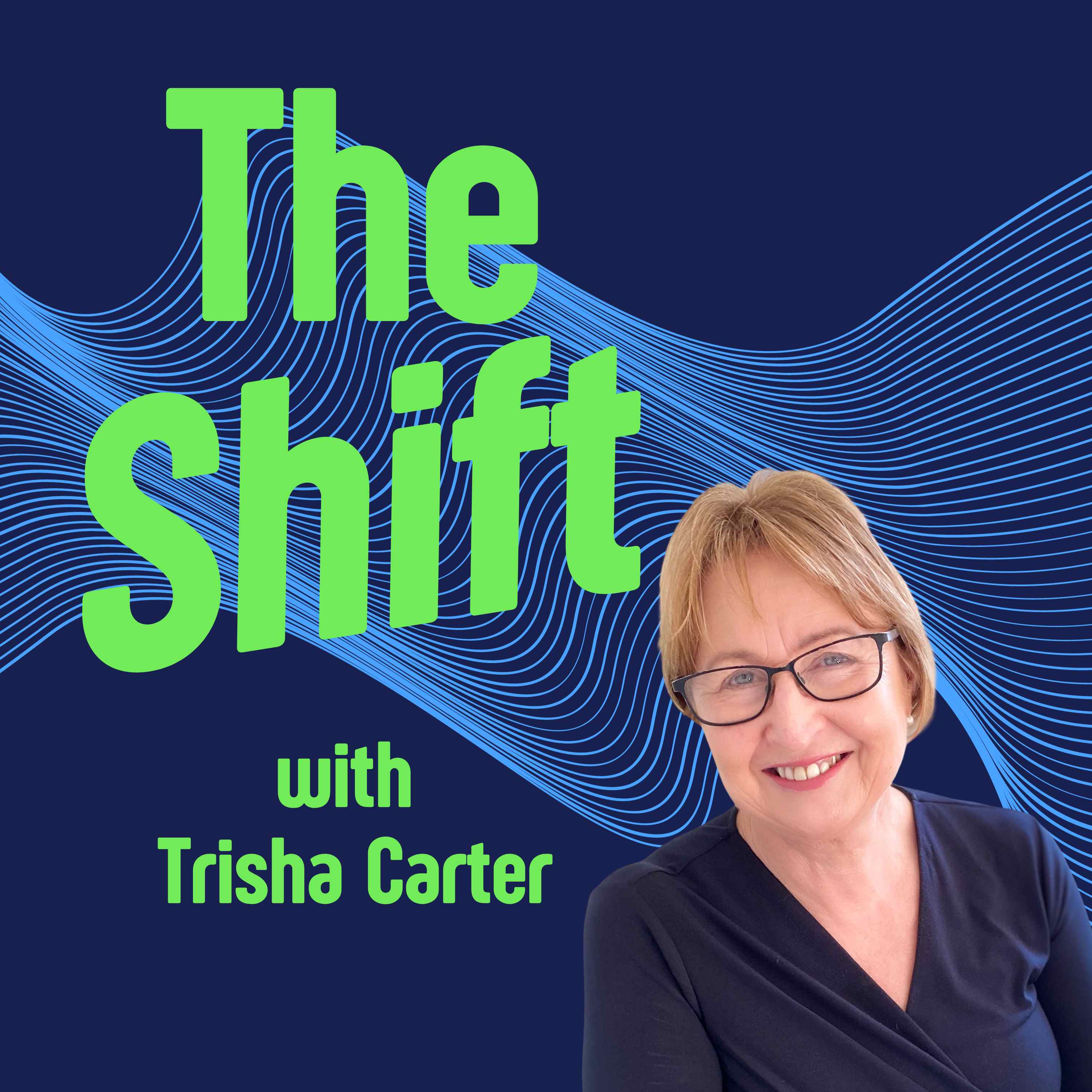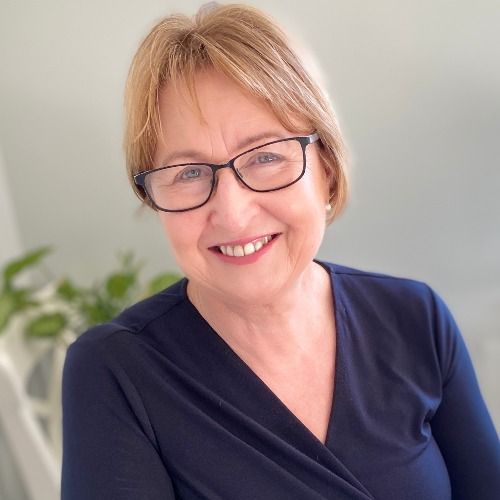Episode 60
The Hardest Question: What tools do we have for peace?
In this solo episode, Trisha explores whether the same cultural intelligence capabilities that help us work across cultures might also be tools for building peace.
Drawing from insights at the International Positive Psychology Association World Congress, Trisha examines Peter Singer's concept of expanding our "moral circle" and Barbara Fredrickson's research on positive emotions, sparked by reflections from David Livermore and Martin Seligman.
Discover how CQ Strategy, Knowledge, Drive, and Action might offer pathways beyond tribalism, and learn practical approaches for designing learning experiences that broaden perspectives rather than reinforce divisions.
Resources mentioned include Peter Singer's work on expanding moral circles (petersinger.info), David Livermore's cultural intelligence research (davidlivermore.com), and Martin Seligman's positive psychology foundations (positivepsychology.com).
Make sure you join Trisha in this journey of growth and discovery throughout the year via Substack or LinkedIn.
Transcript
[00:00:14]
[:[00:01:01] The shifts in thinking. As regular listeners know on this podcast, we unpack and apply cultural intelligence cq to gain those different perspectives. CQ itself is made up of four capabilities, motivational CQ drive, cognitive CQ knowledge, metacognitive CQ strategy.
[:[00:01:53] So I've been doing some reflection and, uh, a fair bit of learning. So let me start with perhaps not the beginning of it, but certainly one of the key influences. This week on LinkedIn. David Livermore, one of the key thought leaders in cultural intelligence. Key author, researcher, founder of the CQ Center, and, let me say previous guest on the shift, check out episodes two and four, back to LinkedIn. He posted a really thoughtful question. He asked, how have we figured out how to send people into space, train AI to diagnose disease and edit the human genome, yet our answer to national and international conflicts is still killing each other?
[:[00:03:06] Maybe that starts with how you and I handle our own differences.
[:[00:03:36] One wise person pointed out that language matters as we lose empathy. Others spoke about the lack of respect for other people, the lack of empathy, and the lack of cultural intelligence in the world, and the need for courage. All really good points. I wanted to add something, but honestly I didn't know where to start.
[:[00:04:23] And if you're interested in that, just have a look on LinkedIn with the hashtag IPA, I-P-P-A 2025. Dear listeners, it was such an encouraging, uplifting. Also challenging event. I wished you were all there with me and never more than in the q and a session with Dr. Martin Seligman. Now he is like David Livermore in the CQ field.
[:[00:05:21] He acknowledged that he doesn't think we have a solution to tribalism, which he described as one of the key forces. Pushing people towards war. He said the question of how do we get out of tribalism was key to speaking to the issue of war. And within that, he raised the question of how do we expand the diameter of our moral circle?
[:[00:06:17] He said he didn't know how it was done, and that's a scientific question for psychology generally, and not just for positive psychology. He felt that that might help us reduce the hatred, the fear, and the need for revenge. To be completely honest with you, dear listeners this moral circle concept was not one that I had heard before.
[:[00:07:07] More recent research. By Thomas Petre and Linda Troop in 2006, conducted a meta-analysis of over 500 studies across 38 countries into the contact hypothesis. And their key finding was that intergroup contact does significantly reduce prejudice in multiple contexts and across different group types. So contact works not just by changing attitudes, but also by reducing intergroup anxiety and increasing empathy and yes, perspective taking.
[:[00:08:20] In. In one sense, it does align with the intention of Allport's work, but they approach the reduction of tribalism and prejudice through different pathways. Allport is looking at interpersonal contact as the key mechanism, whereas Singer is looking more at the rational reasoning and moral reflection that we use as we think about the people around us and he asks us to think about our circles.
[:[00:09:22] This my friends, needs us to step into new thinking. So what do we need for that? We need cultural metacognition. CQ strategy. We need that to be operating here. We need to be able to realize, recognize our preference for our own circle. Who are they? Where do we feel most comfortable?
[:[00:10:10] Well, you can imagine, my first thought was, well, this really needs CQ strategy. And then as I reflected on it, I realized his work really demands a high level of CQ knowledge. We need an awareness and understanding of the experiences and suffering of others whether distant strangers. Animals, or again, those future generations.
[:[00:11:06] But it isn't just intellectual, it's also morally motivated, and I think that's where CQ drive might step in. It's an awareness of the experiences and suffering of others. So we need the intrinsic curiosity, if you like, and also the self-efficacy, the confidence to step out of our own circles, and then, yep, we need CQ action to make it real.
[:[00:11:59] Maybe some of you, many of you are already doing this, but perhaps one of the things we could do is ask people to envision who is in their circle and who is outside, and could we see how we could expand the circle? We could get people to consider the different circles they're comfortable in. And then to think of other circles, they might be a part of that cross over some of those distinctions.
[:[00:12:57] So I figure those are some things we could introduce into our programs if we're not already. But what about those people in our programs who aren't that interested in expanding their circle or maybe they're even hostile to the idea? Well, Martin Seligman did reference, an aspect in relation to that, also.
[:[00:13:54] When we experience positive emotions, we are in a position where we're more likely to see a bigger picture. Perhaps we are more likely to see a different perspective. Those emotions help us loosen the grip of fear and anger, and they undo some of our defensiveness. In fact, one of her studies that I've always loved co-authored with Kareem Johnson found that joy, yes, artificially constructed through watching a, a snippet of a movie could actually eliminate, the racial bias that we hold in facial recognition. And if you want to go back to Dr. Mark Williams' episode, the Neuroscientist, we spoke about our facial template and how that operates, and how we recognize more easily faces that are from our own race. Well, in this experiment, they discovered that that experience of joy helped people see others more accurately.
[:[00:15:12] Frederickson's work shows that positive emotions can literally change the way we perceive those outside our usual circle. So what does that mean for those of us delivering learning experiences? Well, we need to take advantage of those positive emotions to be mindful of the arc of our training, the journey we are taking people on as we get them to think, to reflect, to interact, to listen to others' stories, to play, to learn new content.
[:[00:16:27] So when you've created that learning journey, think about bringing it all together, different people, different experiences, different knowledge and reflections in a mindful and intentional manner.
[:[00:16:55] They form a kind of reinforcing circle of their own. One that widens and strengthens every time we choose empathy, reflection, and cultural connection. So I invite you to consider this. What emotion do you need to feel today to help you to widen your moral circle? And what can you do, or what can you create to offer that spark to someone else?
[:[00:17:53]

